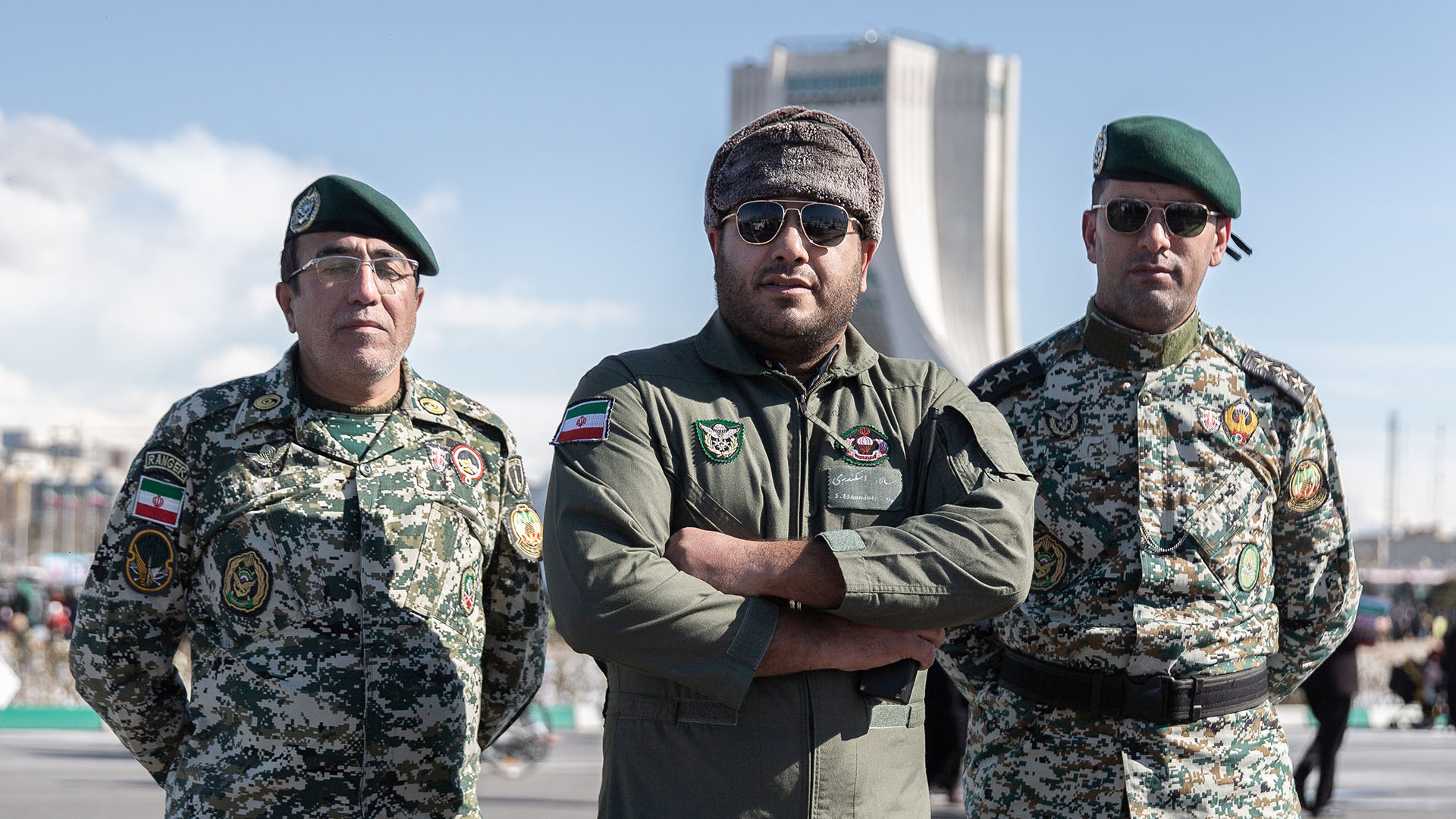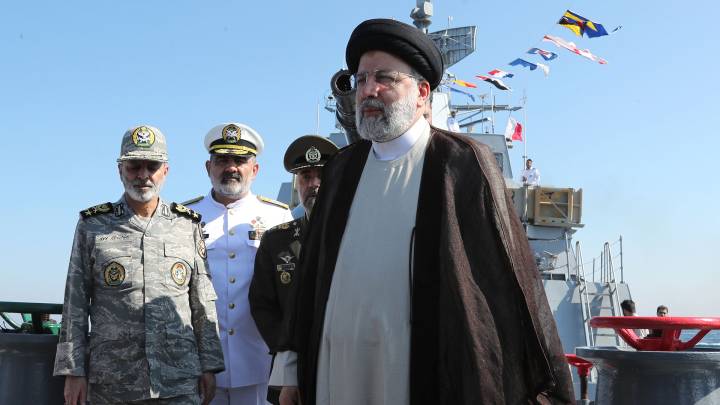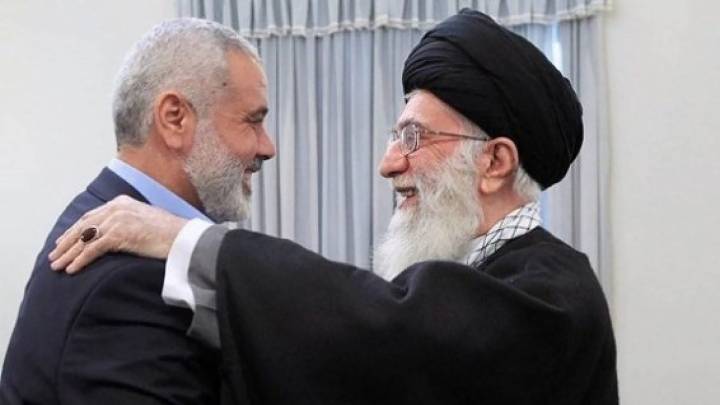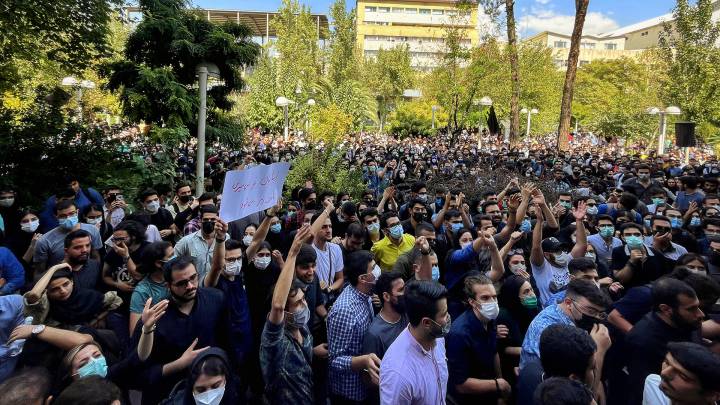Iran’s health care system is at a breaking point. While doctors accuse a powerful institution of diverting critical gear, the US government is stonewalling and seems to be pursuing a perfidious strategy.
When Sonboleh visited her physician last November, she was warned about a strange new flu sweeping across Iran. At the time, nobody was aware of Covid-19, a novel virus that China officially detected in the city of Wuhan the following month.
During the early days of the outbreak, Chinese authorities muzzled whistleblowers as international travel resumed from the country. Looking back, Sonboleh, 53, wonders if the virus spread to Iran months before the first case was ever announced in China. Speaking to zenith over the phone, she contemplated if the virus even killed her friend, who was pronounced dead in October from influenza.
“How can I be sure that she died from the flu and not the corona virus,” said Sonboleh, who only agreed to speak with me after her relative abroad put us in touch.
Four months after Sonboleh visited her doctor, Iran is now struggling to contain a catastrophic outbreak. As of 27 March, at least 2,378 people have died from Covid-19, yet observers believe that the real death toll is five times higher.
Satellite images recently spotted new mass graves in the holy city of Qom, where Iran’s first corona case was detected on 19 February. The government bears considerable blame for not quarantining Qom to mitigate the outbreak. Authorities were afraid that sealing off the city would hinder the voter turnout in a general election on 25 February. Ironically, the government later blamed the virus for the lowest voter turnout since the 1979 Revolution.
Hardline religious clerics – including Iran’s Supreme Leader Ayatollah Ali Khamenei – have since accused the USA of importing the virus to Iran. No proof supports Khamenei’s conspiracy theory, but the USA has maintained crippling sanctions that have left Iranians defenseless against the virus.
Those sanctions, say experts and healthcare professionals, are preventing Tehran from purchasing life saving medical supplies and enforcing containment measures.
Humanitarian Exemption
Washington, for its part, maintains that it doesn’t penalise the sale of humanitarian aid. But hardly any multinational companies are willing to risk making transactions with Tehran’s sanctioned central bank.
That deterrence has resulted in an acute shortage of basic hospital equipment. One hospital worker in Tehran, who asked zenith not to disclose her name for fear of reprisal, said that there is a chronic shortage of masks and gloves in her hospital. She added that medical workers are often forced to reuse protective masks – a dangerous protocol since masks quickly become infected with pathogens from the virus.
The hospital worker also accused Iran’s Revolutionary Guard Corps (IRGC) of distributing the country’s few testing kits and ventilators to political elites. Members of government, after all, have been infected and died from the corona virus over the last month. In recent weeks, members of the IRGC have also mysteriously died from ‘chemical injuries”, which much of the population sustained during Iran’s decade long war with Iraq.
There is no question that respiratory damages from the war makes Iranians vulnerable to the virus. But critics still dispute the regime’s claim. The more likely scenario is that authorities are denying that generals have died from corona to avoid giving the impression that the outbreak has weakened Iran’s leadership.
“The IRGC controls all the equipment that arrives to Iran and they’re the ones exploiting the situation,” the hospital worker told zenith. “Testing kits and medical equipment arrive daily, but they’re given to parliament members who use most of the kits for themselves.”
“The IRGC wouldn’t have to prioritize themselves or the political elites if they had enough testing kits and medical equipment to hand out to hospitals across Iran,” Kamyar Alaei, a global health scholar and an expert on public health in Iran, told zenith over the phone.
‘Critical Moment’
The shortage of protective gear has put Iranian doctors in harms way. According to Alaei, at least 55 medical professionals have lost their lives from Covid-19 since late February. In comparison, 41 medics have died from the virus in Italy, which is now the epicenter of the global crisis.
“Iran is at a very critical moment,” says Alaei. “And It’s really important for the US State Department to convince multi-national medical companies to do business with Iran.”
One possible solution could see the US lift sanctions temporarily in exchange for the release of American political prisoners in Iran. Yet Negar Mortazavi, an American Iranian commentator, believes that the Trump administration has no intention to help Iranians.
“The Trump admin keeps asking for the release of American citizens (a few are in jail) which I think Tehran should do as a humanitarian gesture,” notes Mortazavi. “But the Trump admin has made no promises (at least publicly) that they would then ease sanctions in return.”
For now, several neighbouring countries have come to the aid of Iran, including its rivals. The United Arab Emirates, Kuwait and Qatar have all either airlifted vital supplies such as masks, gloves and ventilators or donated millions of dollars to help Iran fight the virus.
Still, observers believe that Iran won’t be able to impose strict quarantine measures since tens of millions of Iranians are hovering around the poverty line. The only way to sensibly keep people indoors is to provide welfare payments to families. Otherwise, Iranians risk dying of hunger before succumbing to the corona virus.
That may be part of the reason why Iran approached the International Monetary Fund – for the first time in 60 years – for a $5 billion loan. The loan is contingent on US permission and if it doesn’t arrive in time, then the Iranian central bank will be unable to curb the rising cost of healthcare.
Sonboleh, for one, isn’t optimistic, but she refuses to leave the country in order to tend to her 96-year-old father and 83-year-old mother, who has cancer. Their lives are directly at risk, but so is Sonboleh’s who has a weak immune system. “I can afford the high healthcare costs and living expenses for now,” she assures me. “But if most people still can’t work or afford medicine then I think we’re going to see an uprising in a few months.”
The Trump administration hopes sanctions prompt that scenario – even if thousands have to die from the virus first.




